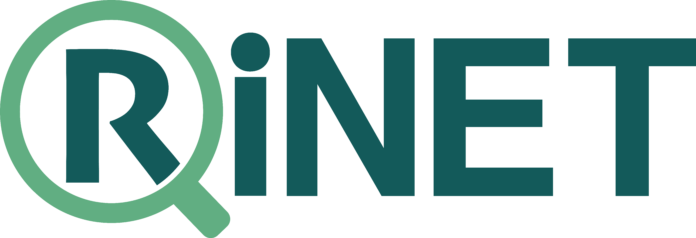RiNET: Blockchain technology And Nigerian Researches Ecosystem
By Abbas Badmus
TECHDIGEST – For those who may not know, blockchain is an emerging technology that provides a secured distributive ledger platform for seamless transactions, which can lead to new opportunities that can benefit industries through greater transparency, enhanced security and easier traceability.
Blockchain is not only becoming a legitimate disruptor in a myriad of industries, its technology has become so promising. Tech giant, IBM, has invested about $200 million to boost in blockchain. About 60% of Nigerian and African startups are deep into researching blockchain options.
Acclaimed ICT experts have believes who appreciates the potential of blockchain, say its technology can revolutionize government, research, finance, insurance and personal identity security.
READ ALSO: RiNET: Nigeria’s Startup Eases Access To Research From Tertiary Institutions
Blockchain technology may not be crypto-currency. Yet, it enables anything of value, including currencies, identities, information, intellectual property, securities, and votes, to be stored, managed, or transferred efficiently, securely, and transparently, without a central authority or third party.
Areas where blockchain technology is applied include education, agriculture, aviation, banking & finance, entertainment, health, international trade, manufacturing, oil & gas, real estates, sports, telecommunications, and transportation.
Some examples of Blockchain companies in Nigeria include; HouseAfrica, Nairaex, Bitkoin Afrika, Buycoins, and Ellcrys among others.
Notwithstanding, indigenous and budding Nigerian Blockchain firms with little or no foreign investment are performing wonder in digital researches delivery. And one of such is Research and Innovation Network (RiNET)
RiNet, the latest addition to Nigerian Blockchain startup, is a platform designed to collate, preserve, manage, disseminate, digitise and safeguard the intellectual property of research contents.
These contents are stored in a centralized platform in order to create interconnectivity of research innovations (theoretical and technical base) that will facilitate the exchange of ideas, information, and research methodology from different demographics of tertiary institutions personnel, students, and independent researchers.
In a chat recently, Usman Murtala, founder/CEO of RiNET, told TechDigest.ng that their startup will contribute greatly to Nigeria’s tech ecosystem by promoting increased demand for made in Nigeria products and showcasing cutting-edge innovative research to prospective stakeholders and investment partners.
“We are also providing a workspace opportunity for collaborative research, small, large-scale projects and expansion of institutional visibility access apart from the fact that we facilitate new research opportunities, give access to international grant opportunities, intervention and serve as a source of revenue generation for beneficiary institutions,” the young CEO explained.
TechDigest had reported that the startup is already complementing research innovations by providing easy access to digitized research content and fostering a competitive advantage across organisations.
Blockchain has shown massive growth over time and this has prompted many blockchain startups who believe the technology is the beginning of a change in Nigeria.
Also, blockchain has pushed for tremendous growth in Nigeria which has made many even more aware and curious as to how they can be a great part of the wealth of Blockchain.
However, any new technology will always go through a hype stage. It takes a lot of time to get rid of all the challenges and use it to power the modern world. The blockchain is not different here. Although there are many possibilities, it will still take some time to get over all the challenges especially in term of adoption.
Inefficient technological design, low scalability, lack of privacy, no regulation, high energy consumption, and criminal connection among others are challenges facing blockcain adoption in Nigeria.
Just like Artificial Intelligence (AI), Big Data, Internet of Things (IoT), blockchain is an emerging technology, therefore no law or regulation is required to make blockchain acceptable in Nigeria.
In any case, the Federal Ministry of Communications and the Digital Economy, through the National Information Technology Development Agency (NITDA), has published a National Blockchain Adoption Strategy that recognizes blockchain technology in the country.
The blockchain industry is capable of attracting huge foreign direct investment (FDI) into the country if government and its agency like NITDA creates more robust regulations and enabling environment.
Providing a robust regulations and enabling environment for blockchain startups would make the industry more competitive and expand to other markets.
To blockchain startups in Nigeria, now is the time for them to come up with technical innovative products that could help solve problems in many vital industries and boost country’s digital economy.
















